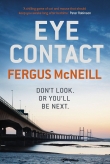
Текст книги "The Doll's House"
Автор книги: M. J. Arlidge
Жанры:
Триллеры
,сообщить о нарушении
Текущая страница: 2 (всего у книги 22 страниц)
7
Having finished tweeting, he turned the phone off and stowed it safely in his jacket pocket. He checked again that the coast was clear, but he was being over-cautious: no one penetrated this deep into the forest.
Pushing on, he made his way slowly through the undergrowth, careful not to snag his clothes on any of the thorns or brambles. His synthetic clothing was unlikely to leave any fibres behind, but you could never be too careful.
He emerged into a small clearing. The foliage was less thick here, the soil sandy and dry. Perfect for his purpose. Clearing a small patch of vegetation, he retrieved the large bundle of sticks from his rucksack and laid them carefully on the ground. Soon he had a good pile, encircled by the little trench he had dug carefully with his trowel. The trench would catch any stray sparks – a forest fire here would be catastrophic. Safety first, always safety first.
A little crumbling of firelighter to set it going. This was more dangerous than using newspaper of course, but newspapers could provide useful clues to a half-intelligent police officer, so paraffin it was. It seemed odd to feel the heat of the fire on an already warm Saturday afternoon, but needs must. If anyone did see it, they would think it was holidaymakers having a barbecue – there were loads of them about at this time of year. Anyway, he’d be long gone by the time anyone did find it, so …
The thought of discovery, as ridiculous as it was, prompted him to action. He pulled Ruby’s pyjamas from the bag and laid them on the fire. He watched them burn, riveted by the slow conflagration. They resisted stubbornly at first, then came the first flicker as the fibres began to catch, before eventually they succumbed to the inevitable.
It was stupid to enjoy it as much as he did. But he couldn’t help it. It was beautiful – the leaping flames, the glowing embers and finally the gossamer soft ash. He was moved by what he saw, aware of its wonderful significance. This was the end of Ruby. She was dead and gone now, but from the fire, from the ashes, something new and beautiful would rise.
8
The young woman lay cold and lifeless on the slab. The sand that had encased her for so long had been swept away grain by grain and sent for analysis, leaving the victim looking strangely clean. Now that she was away from the beach, exposed and unadorned in the police mortuary, she was a pitiful sight. She was so thin – skeletal was how Jim Grieves, the pathologist, had put it over the phone. As Helen stared at the corpse, she felt a wave of nausea sweep over her. This had once been a vibrant young woman, but now her skin was grey, her lips cracked and her bones strained everywhere to puncture what remained of her skin. Helen felt profoundly sorry for her.
They had searched the Police National Computer and made the customary missing persons enquiries, but had come up with nothing. So Helen had decided to head straight to the police mortuary to see if Jim could throw any light on who she was and how she had come to this.
‘She’s been starved,’ Jim offered as his opening salvo. He was not without compassion, but he was to the point, years of service and hundreds of corpses having eroded his desire to engage in pleasantries. ‘Her stomach has shrunk to the size of an orange, bone strength has been compromised and I found traces of non-edible objects – wood, cotton, even metal – in her digestive system.’
Helen nodded.
‘I’ve more work to do, but so far I can find no obvious cause of death. The neck and vertebrae are intact, there are no bullet or knife wounds, no signs of manual or ligature strangulation either, so for now we’ll assume that she starved to death.’
‘Jesus.’
‘This would fit with a few other things I’ve observed. Her skin has a grey, leathery quality – even where it has been well preserved – and her eyes have deteriorated markedly. I would say she was virtually blind by the end. Also, bloods show that she had a total absence of vitamin D in her system.’
‘Meaning?’
‘Taken all together it suggests that she was kept in total darkness in the final weeks or even months of her life.’
Helen couldn’t find words to express her horror this time. Had this young woman starved to death in a lightless hell?
‘Anything else?’ Helen said quickly.
‘You’ll note the tattoo – a bluebird on the right shoulder – done sometime in the last three to five years. Also, the pitting around the groin area. Looks like historic evidence of an STI – I would hazard molluscum contagiosum, but I’ll confirm when I’ve done more tests.’
‘How long has she been buried?’
‘Hard to say with any real accuracy. As you can see, the body has started to decompose. Skeletalization is about thirty per cent complete but there is still plenty of skin remaining and the hair is largely intact. Heat speeds up decomposition, cold slows it down and it was pretty chilly down there. So I would estimate two to four years.’
Helen exhaled – those parameters were too broad for her liking.
‘But I do have something else that might help,’ Jim continued. Turning, he offered Helen a small metal bowl. Helen peered into it – a small, electronic device lay inside.
‘Your victim had a heart condition. This is her pacemaker,’ Jim explained, wiping rust and dried blood off the unit, ‘complete with manufacturer’s logo and serial number.’
Helen mustered a half-smile: finally some good news.
‘Run that serial number down,’ Jim continued ‘and you’ve got your girl.’
9
DC Sanderson approached the flat in Millbrook with a heavy heart. Increasingly this was her lot in life – sweeping up the cases that no one else in the Major Incident Team wanted. Helen, Lloyd and a number of the others had been out at Carsholt, doing the interesting stuff. What had they left her? A glorified missing-persons case. She didn’t blame Helen, who had always treated her fairly and encouraged her as a fellow female officer. No, she laid the blame squarely at Lloyd Fortune’s door, who she felt favoured the new DCs over her. It wasn’t fair – she was more experienced, knew Southampton better than these blow-ins – but station politics is a fickle business.
The interior of the flat didn’t improve her mood. It was amazing what landlords could get away with these days, now that no one could actually afford to buy a property. The one-bed flat was cramped and unprepossessing. Damp hugged the ceiling, the windows were ill-fitting and draughty and she was sure there were things living behind the skirting boards. Or perhaps dying. The whole place smelt of decay.
Still it was someone’s home and the tenant – Ruby Sprackling – was somebody’s daughter. Alison, her mother, flanked by her worried husband, Jonathan, paced the floor. Tears were not far off, so Sanderson decided to press on and get as much info as she could.
‘There have been a lot of … issues over the last couple of years, but she wouldn’t take off like this,’ Alison was saying. ‘She was due to move back into the family home next week, we’d been talking about it for months, we’d made arrangements …’
‘Could she have got cold feet?’
‘No’ was the swift response, although Sanderson detected a hint of doubt. She was also intrigued by the fact that the stony-faced husband had not said a word.
‘You said that she had been in contact with her birth mother recently?’ Sanderson continued.
‘Not recently, but on and off during the last two years.’ Ruby’s father was keen to talk about this topic. ‘She was a terrible influence,’ he said further, ‘got her into drugs, skipping school, there was trouble with the police. Ruby completely ballsed up her A-Levels because of that bloody woman.’
A sharp look from Alison made him rein in his anger. He ceased his rant but was unrepentant. He knew what he thought of Shanelle Harvey and wasn’t minded to change his opinion. His promising daughter had gone completely off the rails in the last year, prompting furious bust-ups and recriminations within the family – all because of an innocent and well-intentioned desire to create a bond with her biological mother.
As he filled her in on the details, Sanderson couldn’t help feeling that Ruby would have been better off sticking with what she had. Shanelle Harvey had turned out to be a small-time fence, thief and dealer with questionable hobbies and even more questionable boyfriends. Not the plucky but poor earth mother that Ruby had perhaps been hoping to find.
‘You said you weren’t too worried at first, but now …’ Sanderson got the conversation back on track.
‘I wasn’t,’ Alison agreed. ‘Ruby can be unreliable and impulsive – it’s not impossible that she would wind herself up and take off for a bit. But she’s posted one tweet since last night and, believe me, that is seriously out of character. Her phone’s turned off – I’ve tried her a dozen times …’
‘What about keys? Purse?’
‘It looks like she’s got those with her,’ Alison conceded.
‘So she packed a bag … ?’
‘Her rucksack’s not here. And it’s true she’s taken most of her clothes.’
‘Was there any sign of forced entry?’
‘No, the lock’s new and pretty decent and the windows seem ok, but even so …’
Sanderson felt herself mentally switching off, dismissing Alison as a mother in denial, then mentally slapped herself back into concentrating. Helen Grace was very hot on missing persons cases – she always said that they were just the stepping stones to murder cases, rape cases – and Sanderson knew Helen would expect her to leave no stone unturned.
‘Her inhaler.’
Now Alison had Sanderson’s attention.
‘She’s asthmatic?’
‘Since birth. She had several bad attacks when she was a kid. Ended up in hospital twice. Now she always has her inhaler with her. It’s her little mantra going out the door: “Keys, purse, inhaler …” She would never take off without it.’
‘And?’
‘And I found it by the side of her bed. It must have fallen off her bedside table on to the floor. Even if she was in a rush, even if she did want to get away, she would be too scared to leave without her inhaler.’
‘And if she’d forgotten it?’
‘Then she’d come back, regardless,’ Jonathan said firmly, equally concerned it appeared, despite his chequered history with his stepdaughter.
Sanderson asked some more questions, then wrapped things up. This missing persons case had just taken on a more sinister hue. As scrupulous as she was to reassure Alison and Jonathan, the detail of the forgotten inhaler alarmed Sanderson. It’s the kind of thing someone else might miss, but not Ruby, who’d been scarred by asthma since birth. Which raised the question: had Ruby really taken off? Or was a third party involved?
10
Sometimes it was tough being a parent. Scratch that, it was always tough being a parent. Detective Superintendent Ceri Harwood mounted the stairs to the third floor of her fashionable townhouse in a dark mood. She had been nagging her kids to go to bed for nearly an hour now, but still they defied her, finding endless excuses to avoid doing what they were asked. It had been a long day – she didn’t need to be marching up and down the stairs all night, when she could be snuggled up on the sofa with a glass of wine.
‘If you’re not in bed and quiet within two minutes, the PS4 goes into the cupboard for a week.’
It felt good to threaten a week – she had never threatened a whole week before. It had the desired effect. The fourth floor suddenly went very quiet as feet scurried, lights were switched off and peace descended. Harwood waited a further few minutes, then crept up to the top floor and poked her head round the door.
Both girls were fast asleep and, despite her irritation and tiredness, this made her smile. They had had busy days with school, swimming, music lessons, but even so Harwood marvelled at her kids’ ability to drop off to sleep within seconds. It was not a skill she possessed – stress and the fag end of her daily caffeine intake often keeping her awake and restless into the small hours.
It had been a hard year. A year spent swallowing Helen Grace’s heroism and popularity day after day. Grace had brought in two serial killers now and had achieved legendary status within the Force as a result. Outside, in the real world, it was little better: the subject of Helen Grace often came up at dinner parties Harwood attended, people peppering her with questions about the Detective Inspector’s character and talents. It was all Helen, Helen, Helen.
In the professional sphere, Harwood had behaved impeccably. She had patted Helen on the back, congratulated her on her official commendation and made sure she had all the resources she needed. Her success ultimately reflected well on Harwood – but none of this made her feel any better. She remembered Helen’s withering character assassination of her, as they came to blows during the Ella Matthews investigation. Infuriated at what she perceived as Harwood’s attempts to run her out of the Force, Helen had dismissed her as a glorified politician, unfit to wear the police badge. Helen had not mentioned the row since, but Harwood recalled it word for word.
Still, there were some things Ceri had that Helen didn’t. The superior rank. A loving husband. Two beautiful daughters. Harwood stared at the sleeping girls now and her despondency ebbed away. She had always been a fighter and despite having been in Helen Grace’s shadow for so long, where there was life there was hope.
As she descended the stairs once more, Harwood knew that there would be payback. Some day soon, she would settle the score. She had lost the battle after all. She had not lost the war.
11
The seventh-floor office was quiet as the grave. It was after hours now and the rest of the Major Incident Team had headed home, leaving Helen alone. Which is how she liked it. She didn’t need an audience for what she was about to do.
Double-checking that there was no one lurking in the corridors, Helen parked herself in front of a computer terminal and fired it up. Using someone else’s machine was a low trick, but a necessary one – it was strictly forbidden to access the PNC for personal use.
Within a minute, she was in the system. She didn’t hesitate, typing swiftly, ‘Robert Stonehill’. As the system searched for any crimes or incidents linked to that name, Helen tried to ignore the faint fluttering of hope inside her. Her nephew had dropped off the radar nearly twelve months ago now – he had had no contact with his adoptive parents or his friends – and Helen’s constant searching for him had yielded nothing. Her feud with Emilia Garanito had prompted the vindictive local journalist to publicly out Robert as the biological son of Helen’s sister, Marianne. Learning for the first time about his mother’s awful crimes, while the press besieged his poor parents’ house, had tipped the young man over the edge. He had fled in order to draw the press pack off. Helen had assumed he would reappear when the furore died down, but he hadn’t. Robert wanted to stay hidden.
His continued absence was crushing for Helen. He was the only family she had left and during their brief acquaintance she had made a promise – to herself and to Robert – to be his guardian angel. To protect him from a dark world that had taken his mother’s life and blighted hers. But she had failed utterly – and now he was lost to her for good.
The search came up blank. As it always did. Suppressing the deep sadness that rose inside her, Helen turned off the terminal and hurried out.
The short ride to Charlie’s house helped restore her spirits. She and Charlie had been through a lot together – good and bad – yet Helen always felt welcome. Steve and Charlie’s home wasn’t grand, but it was a happy one. Even more so than usual now, with the impending arrival of their baby girl.
‘You’re looking well,’ Helen said, as they sat in Charlie’s living room.
‘Is that code for enormous?’ Charlie countered.
‘No. It suits you.’
‘Bloated ankles and stretch marks – it’s a good look,’ Charlie replied, casting an envious eye over Helen’s trim figure. ‘Let’s hope it catches on.’
‘How are you and Steve getting on?’
‘Outwardly, excited. Inwardly, terrified.’
‘You’ll be fine. You’re both naturals.’
‘Maybe. If Steve and I are still married in twelve months’ time, we’ll be able to say it’s a job well done.’
Helen smiled and sipped her tea. Helen never drank, so was a good companion for a mum-to-be.
‘And how are you? McAndrew told me about your beach body,’ Charlie continued. ‘Sounds … unusual.’
Helen could tell by Charlie’s tone that she was already missing police work. Steve had been insistent she quit the Force after what had happened with Marianne, and Charlie had initially agreed to do so. But the unexpected discovery of her pregnancy had helped Charlie hedge her bets, opting for a back-room role and then a year’s maternity leave, taking her out of the firing line. Though she’d never say it aloud, Helen hoped Charlie would come back to Southampton Central when the time was right.
‘It is. It was clinically done – and some time ago – which makes me worry –’
‘What he’s been up to since?’ said Charlie, completing Helen’s sentence.
Helen nodded.
‘And how are the team shaping up in my absence?’
‘Still finding their feet,’ replied Helen diplomatically.
‘And Lloyd – how’s he doing?’
Helen sensed that this was what Charlie really wanted to know. The sudden elevation of this talented, but inexperienced officer to the role of DS had stuck in Charlie’s craw. She put it as much down to Detective Superintendent Harwood’s mistrust of Charlie, as she did to Lloyd’s individual merits. There’s nothing worse than losing out to politics and, despite Charlie’s good heart, Helen knew she was hoping Lloyd wouldn’t cover himself in glory.
‘Early days,’ Helen replied, keeping her expression as neutral as possible. Whatever she might feel personally, she could never let on that she was anxious about her current team.
Helen left shortly afterwards, wishing Charlie well and promising to return before D-Day. She was walking to her bike, when her phone rang. It was DC Grounds.
‘Sorry to disturb you late, Ma’am, but we’ve had results back on the pacemaker.’
Helen stopped walking.
‘The dead woman is Pippa Briers. She would be twenty-five now. Next of kin is her father, Daniel Briers. We’ve got a Reading address and phone number. Do you want me to make the call?’
‘No, I’ll do it. Text me the details.’
Helen rang off. Moments later, Grounds’ text came through. Helen steeled herself for what was to come. She couldn’t put it off – she owed it to Daniel and Pippa Briers to make the call without delay. Still she took a second to compose herself. However many times you’ve done it, it is never easy to tell a parent that their beloved daughter is dead.
12
Ruby came to, scared and disoriented. She had been determined not to let her guard down, but had dozed off nevertheless. She scanned the room quickly, alive to the danger despite her continued grogginess and aching head, but there was none. She was still alone.
What time was it? Ruby had no watch and the clock on the wall was frozen at quarter past twelve. She could have slept for five minutes or five hours, she had no way of knowing, which unnerved her deeply. She was like Sleeping Beauty down here, trapped in a living death. Except this lonely girl had no one to rescue her.
Ruby shivered, her body numb with cold. It must be night-time by now, because the temperature in the room had dropped markedly. It was a horrible damp kind of cold that got into your lungs and head. Ruby knew already that she would become ill here. Or worse. And she’d spent the whole day asking herself why.
She had tried to place her captor. Tall, thin, with a curious manner, there was something familiar about him – was it his face? Or the smell he gave off? – and she had tortured herself trying to think where she had seen him before. If she could work out who he was, then she could work on him, persuade him to see the harm he was doing. But he eluded her and her attempts to identify him only served to crush her spirit further.
Why? Why? Why?
Why was she here? What had she done?
At first, she had assumed he was going to kill her. Or worse. But he had made no attempt to harm her. Then she’d assumed he wanted money. But he didn’t. He wanted her. This strange room with its pastiche of homeliness – the stopped clock, the empty shelves, the freshly laundered sheets – was designed to be a home, not a prison.
How did he know her so well? Had something she’d done prompted her abduction? Was she in some way responsible?
In the shivering darkness, this explanation had made the most sense. She had been a terrible daughter and a bad friend. Since Alison and Jonathan had adopted her, her life had been steady and productive. Unwanted at birth, Ruby could have gone badly wrong, but thanks to the kindness and charity of her adoptive parents she had had a decent start in life. And she had thrown it back in their faces. Her intentions had been good. The knowledge of her abandonment by her birth mother had never left her and she needed to meet her, to see if, years later, she cared for her child at all.
What had she found? A calculating, manipulative criminal, interested only in how her abandoned child could benefit her. Ruby cursed herself for her stupidity in ever having trusted her. Because she swallowed her lies, because she desperately wanted her attention, she had spurned the only people who had ever shown her any real love. And when they reacted badly to her craziness, she had rewarded them with vitriol and abuse. She had called them every name under the sun, spat at them, clawed at them. She was under the influence – in more ways than one – when she committed those crimes against her family, but that didn’t excuse her behaviour. She had been vile to those who least deserved it.
As Ruby lay on the bed, her surrender complete, she thought she understood. She had done terrible things. She was, and always would be, a terrible human being.
And now she was going to be punished for it.








